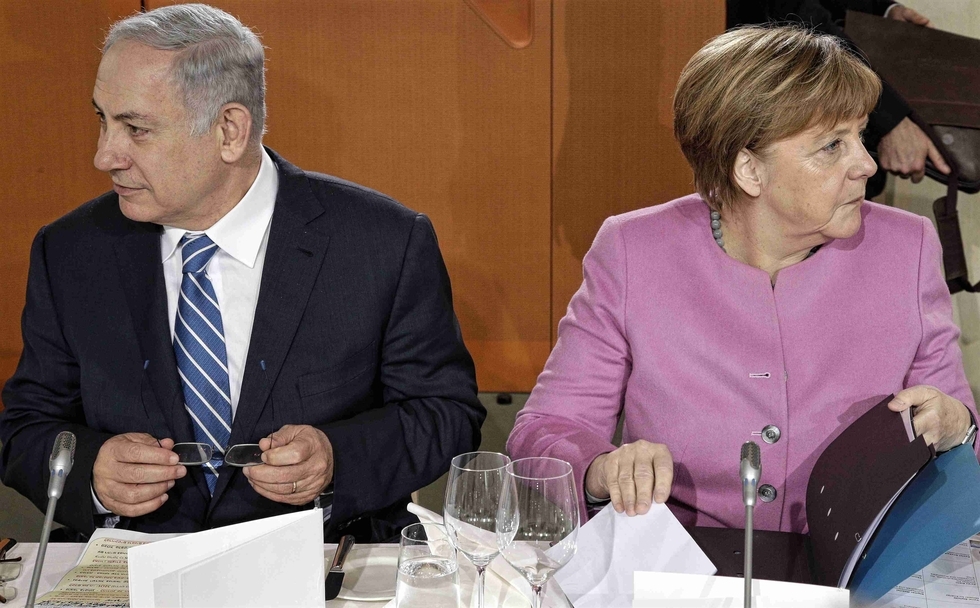Did Berlin cancel Jerusalem summit amid anger at settlement law?

Germany has cancelled a joint summit with Israel that was scheduled for Jerusalem in May, amid speculation that Berlin's decision was sparked by anger at Israel's new settlement law.
The summit, scheduled for 10 May, is a near-regular meeting between the two governments which German Chancellor Angela Merkel began during the term of Israel prime minister Ehud Olmert.
Berlin has said that national and international political commitments are the main reason for cancelling, also citing the German elections scheduled for September.
READ: Law dubbed 'unacceptable' by Arab leaders
An Israeli spokesman told Deutsche Welle that the cancellation was because of the “variety of international appointments within the context of the German presidency of the G20.”
But Israeli daily Haaretz says it has been told by an Israeli government source that Germany had expressed “massive anger over the law” which legitimised around 4,000 settler homes in the West Bank.
Haaretz said that the decision by Berlin was its way of expressing displeasure over the Knesset's approval of the bill.
Two senior German officials refused to comment, Haaretz reported, but said they did not deny that the background for the cancellation was Berlin's dissatisfaction over the expropriation law.
Bill condemned
German discomfort at the law became apparent when a statement released by the German Foreign Ministry stated that “many people in Germany who stand firmly by Israel’s side in a spirit of heartfelt solidarity are disappointed by this turn of events.
“The confidence we had in the Israeli government’s commitment to the two-state solution has been profoundly shaken. Only a negotiated two-state solution can bring durable peace and is in Israel’s interest. It remains a fundamental tenet of our Middle East policy."
'The confidence we had in the Israeli Government’s commitment to the two-state solution has been profoundly shaken'
- German foreign ministry
The law has widely condemned. United Nations Secretary General Antonio Guterres said the law would have "far-reaching legal consequences for Israel" and was "in contravention of international law".
France called the bill a "new attack on the two-state solution," while Britain said it "damages Israel's standing with its international partners".
And critics at home included Israeli President Reuven Rivlin, who said the move would "cause Israel to be seen as an apartheid state, which it is not."
But the United States refused to comment, in stark contrast to the settlement criticism repeatedly voiced under Barack Obama. However Trump has since said that new settlements are not helpful.
Relations usually cordial
Relations between Israel and Germany have traditionally been cordial since World War Two.
In 2008, Angela Merkel became the first foreign head of state to address the Knesset. She said at the time: “The security of Israel will never be negotiable for me, as the Chancellor of Germany.”
In 2010 Israeli president Shimon Peres addressed the Bundestag on the 65th anniversary of the liberation of the Auschwitz death camp.
And in 2014, Peres conferred Merkel with Israel’s highest national medal of honour, the Itur Nesi Medinat Israel.
New MEE newsletter: Jerusalem Dispatch
Sign up to get the latest insights and analysis on Israel-Palestine, alongside Turkey Unpacked and other MEE newsletters
Middle East Eye delivers independent and unrivalled coverage and analysis of the Middle East, North Africa and beyond. To learn more about republishing this content and the associated fees, please fill out this form. More about MEE can be found here.



